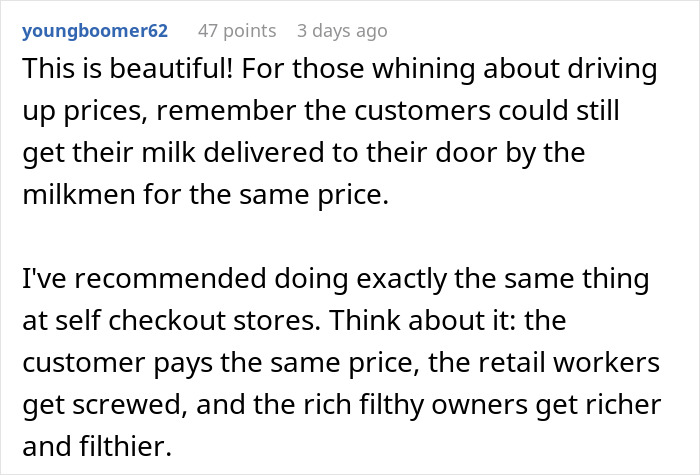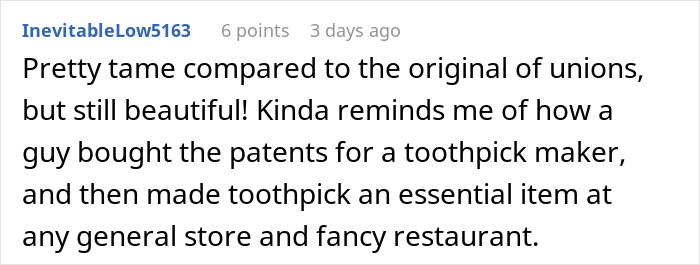Grocery Store Tries To Trick Dairy Company With Pricing, Regrets It When Milkmen Start Protests
Today, when we want some milk, all we have to do is go to a supermarket. But in the olden days, milk would get delivered right to people’s doorsteps. These delivery guys were milkmen, and they would make deliveries in their white uniforms and carry milk baskets full of bottled milk in their hands.
Although the profession might seem idyllic from the now-old-timey pictures, they would have trouble, just as any other workers now and back in the day. A granddaughter of a milkman shared a story on r/PettyRevenge about how some milkmen decided to protest one store’s milk policy in the ’50s. When they felt their livelihoods were in jeopardy, they took some disruptive action.
Bored Panda reached out to the granddaughter of this milkman. She was kind enough to give us some more details about the protest and even told one more story involving her grandpa. Read our conversation with u/trekkiegamer359 below!
Back in the day, milkmen were the ones delivering milk to every household
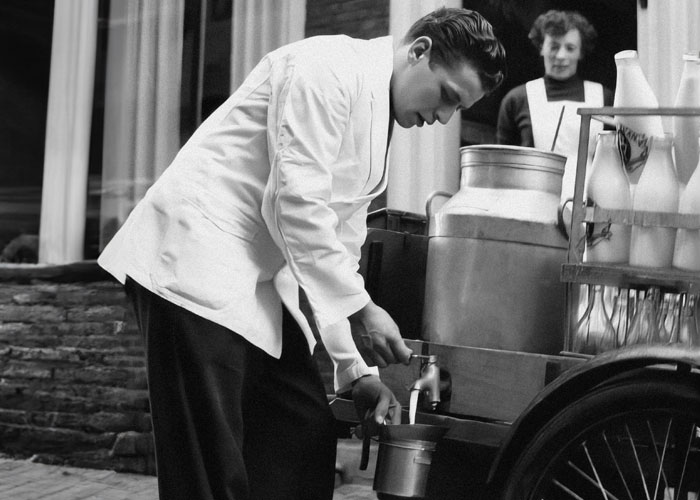
Image credits: Nationaal Archief / unsplash (not the actual photo)
However, they also had troubles, and they weren’t afraid to protest when grocery stores started threatening the existence of their profession
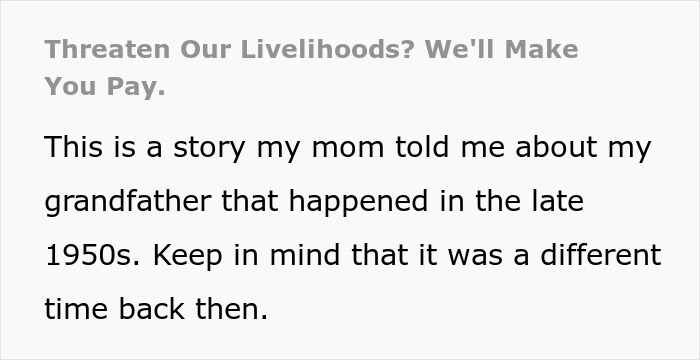
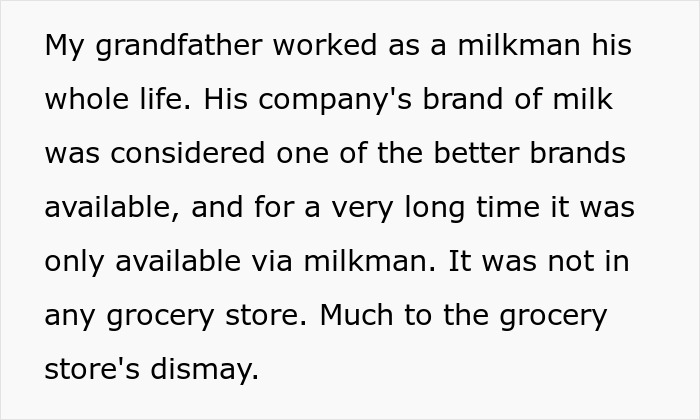
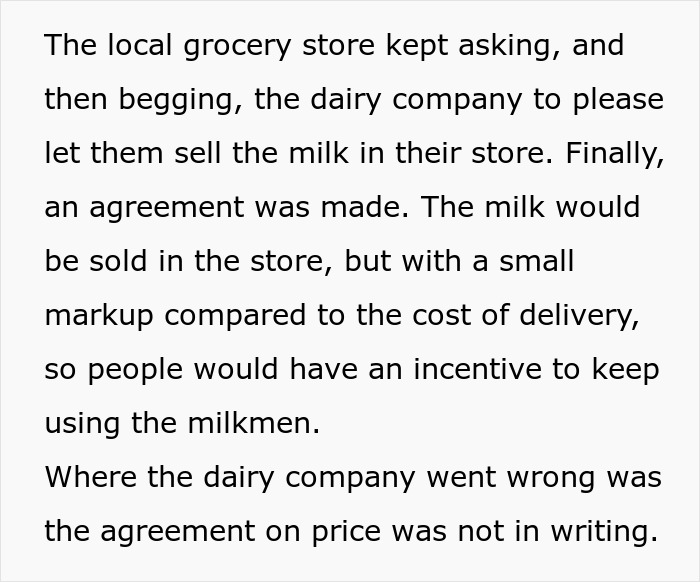
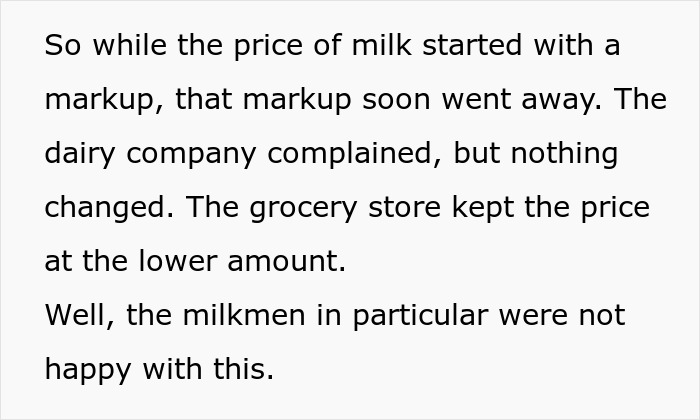
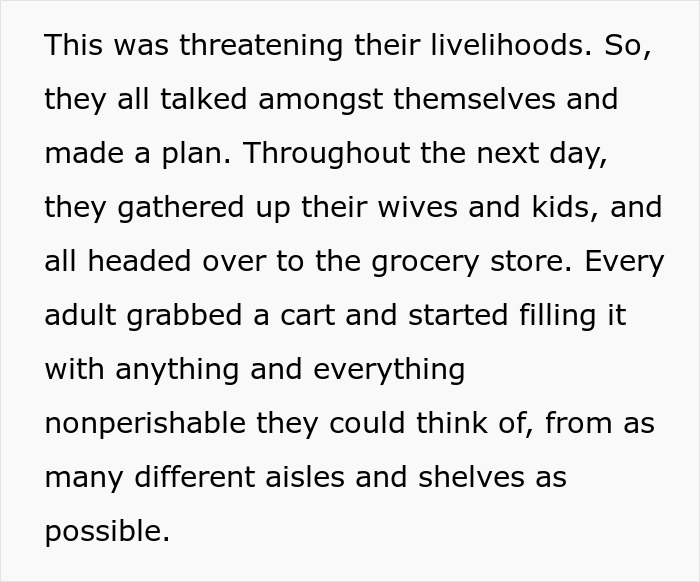
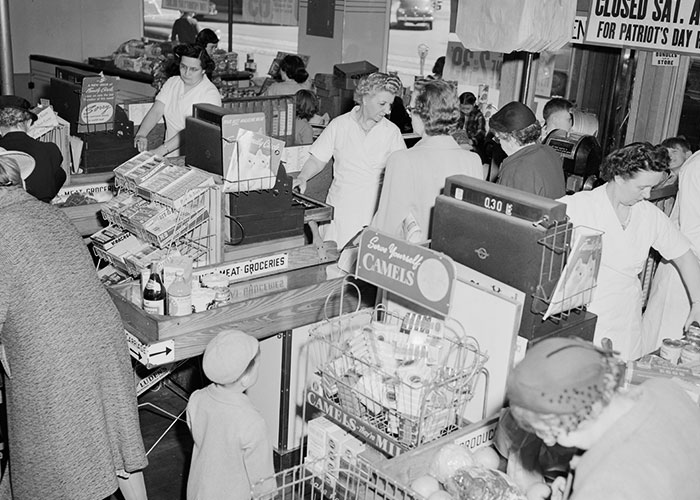
Image credits: Boston Public Library / unsplash (not the actual photo)
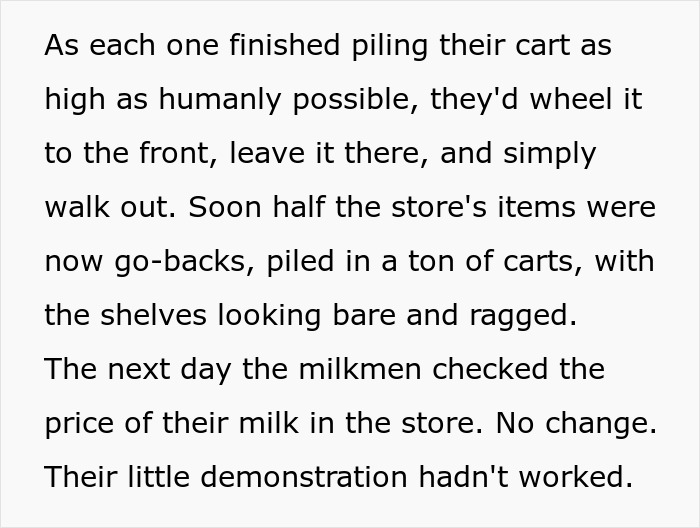
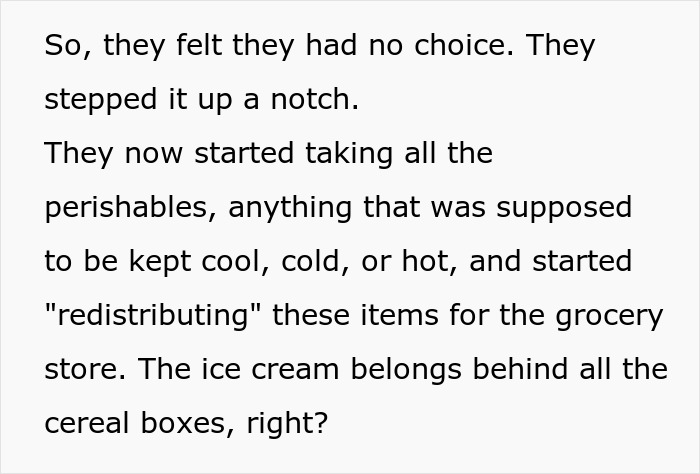
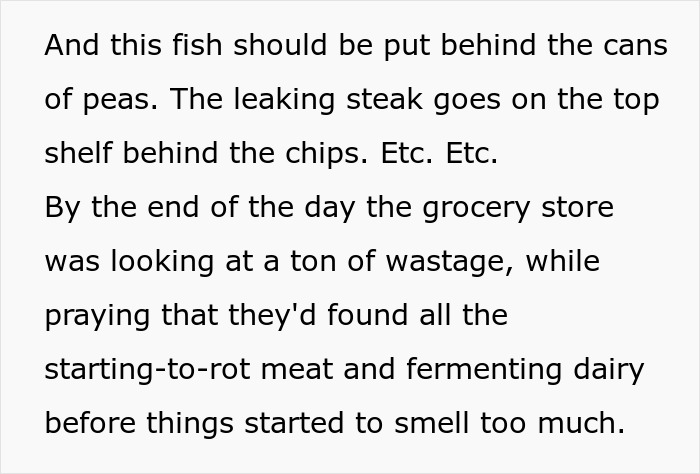
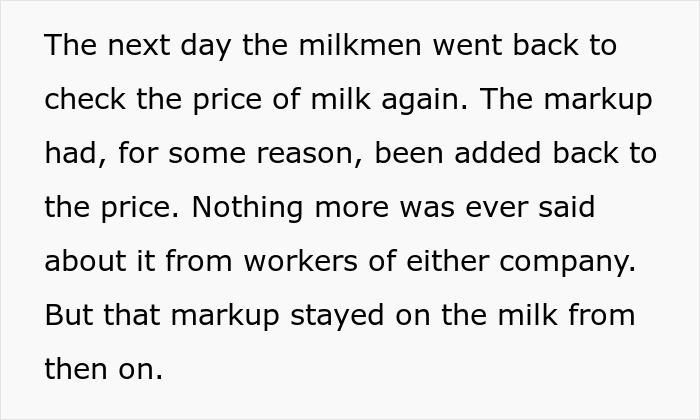
Image source: trekkiegamer359
The granddaughter of the milkman shared some more details about the story in the comments
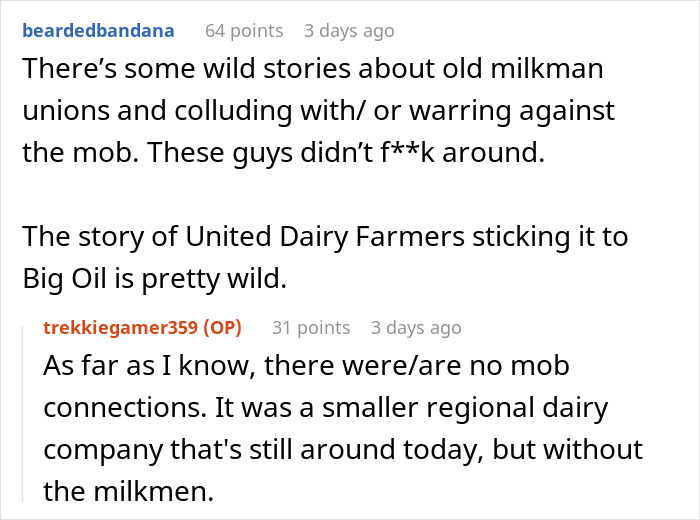
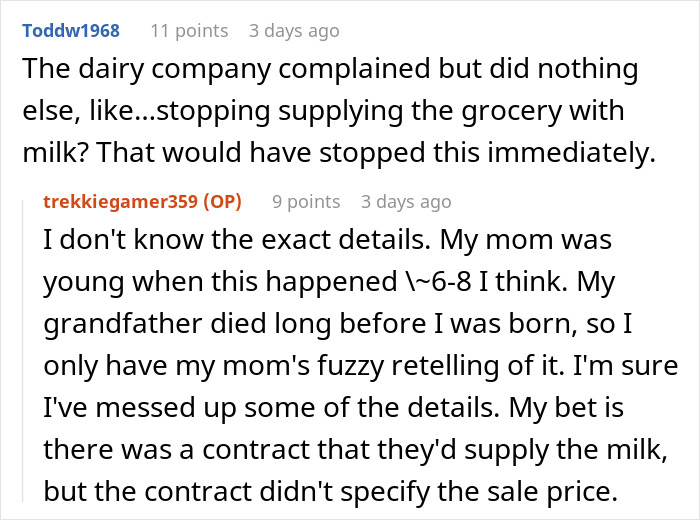
The OP told us how much the markup actually was
The 34-year-old tells Bored Panda that she decided to share her grandfather’s story out of sheer boredom. “I was having a bad day and was bored with some time on my hands. I’ve heard this story a number of times since my childhood,” the OP admits.
The Redditor says that her grandfather was “one of the less extreme protesters,” but all the milkmen’s families were very mad when the store eventually removed the markup. “The markup was for 2-3 cents,” the OP tells us in more detail. “It wasn’t a lot but enough to make a difference to some of the customers.” Today, those 3 cents would be around 40-50 cents, so it’s understandable that the price change seemed significant to some people.
The Redditor also clarifies one of her comments about the dairy company. “The dairy company actually is not around anymore. I was mistaken in my comment. The company closed in the late 1970s, a few years after my grandfather passed away.”
The OP also shared another story about her grandpa
Although the Redditor doesn’t have any more stories about her grandpa’s milkman days, she did share one where he pranked his neighbor. Both men were avid gardeners and would engage in a friendly tulip-growing competition every year.
But one year, OP’s grandfather decided to be a little bit of a trickster. “One year, my grandfather decided to plant his tulips extra early in the hopes that any late frost wouldn’t be enough to kill them.”
“The neighbor saw this and had to comment, questioning my grandfather’s planting schedule and the inherent risk of planting so early. Well, my grandfather was a bit of a prankster. So he decided to have a bit of fun.”
“He told his neighbor that he’d gotten his hands on a brand-new product from a gardening supply company. This new product could be mixed into the soil and keep it from freezing. But he said that the product wasn’t officially out yet. It was still in the test phase.”
“My grandfather explained that he’d been able to get some because his good friend worked for the company and had slipped him some before it went to market.”
“Well, the neighbor was fascinated by this new technology and had fully believed my grandfather’s story, listening with rapt attention. The next day, the neighbor came over to my grandfather and said he needed to get him some of this new stuff.”
“The neighbor said that he’d called the company and told them he knew about this stuff, so they should let him buy it right now. He already knows it exists, and they can’t hide the truth from him. So, really, won’t they just sell this stuff to him?”
“The company had, of course, never heard of this product my grandfather had randomly made up. But the neighbor was persistent. He spent half an hour trying to get the poor soul over at the company to sell him this top-secret soil technology.”
“When my grandfather heard this, he cracked up and confessed to pulling the guy’s leg. He admitted that he was just crossing his fingers on the weather, and there was no top-secret soil addition to make the soil not freeze.”
“The neighbor was not happy about being made a fool, but he took [it] in stride, and the men continued to be friendly gardening rivals for years.”
Modernization pushed the profession of the milkman out, bit by bit
The story of OP’s grandfather was probably just about one of the many dissatisfied milkmen of that time. Because of suburbanization after WWII, their routes became longer. To cover their costs, the milkmen automatically increased their prices, which led people to opt for milk from the grocery store.
More and more people started owning refrigerators, so the milk wouldn’t go bad as quickly, and daily deliveries were no longer needed. Milk’s shelf life also increased with the use of pasteurization.
The birth of the grocery store is also to blame. People used to buy things like bread, eggs, and meat in specialty stores. Grocery stores made all these things and milk available in one place.
More and more people began to own cars as well, so people could get to the store themselves and shop more often. Back in the ’60s, milkmen delivered 30% of the milk in households. By 2005, it was only 0,5%.
Manufacturers also began cutting costs by selling milk in carton containers. The glass bottles became unpopular because they would break often and were more expensive to make. By the 1950s, plastic and carton containers replaced almost all milk glass bottles in the U.S.
All these factors led the milk drivers to take action and unionize. As mentioned, the OP’s grandfather’s case wasn’t the only one. In 1979, The New York Times wrote about how a union of milk drivers and dairy workers organized a walkout in New York City.
While the walkout may not have threatened the everyday shopping habits of well-off families, it affected hospitals, old age homes, and other institutions. The milk drivers were protesting for better “wages, pensions, welfare benefits, and job‐security provisions.”
Some people were playful with their reactions in the comments, but others saw this as a perfect example of old-timey unionizing



